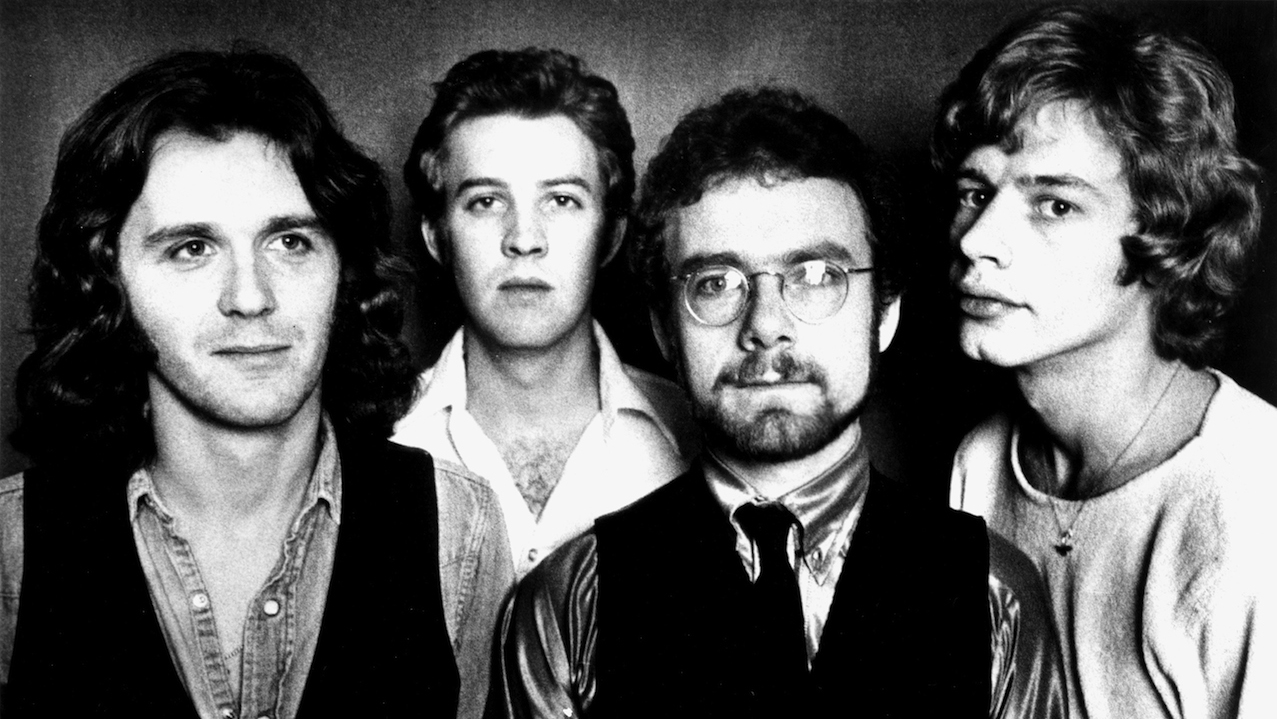
The 1970s were a turbulent time for King Crimson, with numerous personnel changes from one record to the next, leading up to their split in 1974 after the completion of Red. In the half-decade and six albums leading up to that abdication, however, the music they produced was bold, uncompromising and visionary, determinedly pushing at the boundaries. In 2016 Prog chose 10 of their best from the 70s.
10. In The Wake Of Poseidon (1970)
After the first band’s implosion, Robert Fripp’s determination to keep the King alive meant its follow-up, In The Wake Of Poseidon, echoed their startling debut. Reminiscent of The Court Of The Crimson King, this mellotron-drenched anthem – with Greg Lake’s sonorous choir and Michael Giles’ thunderous drumming – is a somewhat overlooked classic.
9. The Battle Of Glass Tears (1970)
With their third album, Lizard, Fripp augmented a transitional line-up with top-drawer jazz players to create an epic, sprawling, chaotic clash of styles veering from sparse, cinematic moodiness to free-form skirmishing. Scattered with pianist Keith Tippett’s splintered notes, a chillingly solemn Fripp solo guides the piece to a thrilling conclusion.
8. Sailor’s Tale (1971)
Propelled by Ian Wallace’s jazz-inspired drumming, swirling Mellotron, Mel Collins’ furious sax and Boz Burrell’s galloping bass, Fripp’s solo, laid down on the last day of recording of their fourth album, Islands, unleashes a metallic collision of lines and chords that sounds like nothing before it in the Crimson canon.
7. The Night Watch (1974)
King Crimson always had a soft spot for ballads and this is one of their best. With lyrics inspired by Rembrandt’s painting of the same name, Fripp’s resplendent solo – recorded in a single first take – is a thing of beauty, but don’t miss John Wetton’s subtle, exquisite bass detail supporting it.
6. Starless And Bible Black (1974)
The title track to Crimson’s sixth studio album is, paradoxically, a live recording. Complex and haunting, though fans believed this a meticulously composed piece, it’s entirely improvised. David Cross’ atmospheric swathes of Mellotron provides a luminous backdrop as drummer Bill Bruford and bassist Wetton shift the action from the nebulous into sharp focus.
5. Red (1974)
Hugely influential, Crimson’s seventh and final ‘70s studio album was touted by Nirvana producer Butch Vig as the kind of sound Seattle’s grunge gurus should be aiming for. Wetton’s malevolent bass is every bit the equal to Fripp’s chordal shards, while Bruford’s controlled, clattering snare and cymbal ensures head-blitzing devastation.
4. Fracture (1974)
Fripp’s fiendishly complex cross-picking moto perpetuo figure, knitted into grinding monster riffs and explosive jazz-rock break-outs, typifies Crimson’s ability to meld brute force and clinical precision to breathtakingly audacious degrees. The final barn-storming section, including Bill Bruford’s yelp of excitement as the finishing line comes into view, is hair-raising stuff.
3. Larks’ Tongues In Aspic Part I (1973)
The title track of the fifth studio album – with Fripp, John Wetton, Bill Bruford, David Cross and free-jazz court jester Jamie Muir on percussion and all sorts – is replete with buzzsaw riffs, intricate timings, clattering metallics, earth-moving bass, bucolic idylls and disembodied voices, forming a startling platter for the discerning palate.
2. Asbury Park (1974)
Recorded in the last days of their final tour of the ‘70s, even with tensions rife within the band, this remarkably powerful improvisation showcases the breathtaking musical telepathy they’d developed. After Bruford’s opening roll, Fripp shouts ‘F!’, as they blast off to explore a musical universe unique to King Crimson.
1. Starless (1974)
Suffused with woebegone Mellotron, the melancholic ballad leads, via an ominous bass line, across the tightrope-walking one-note guitar solo to dive into a thunderous, majestic finale. An undisputed classic, never mind the best ‘70s King Crimson song – this epic contains some of the finest moments in progressive music as a whole.







